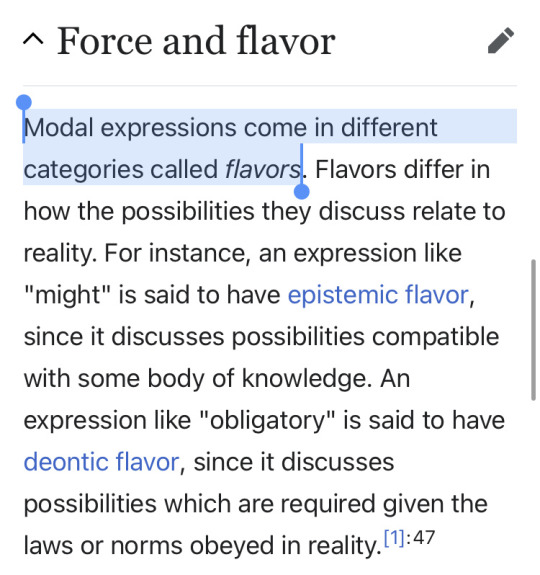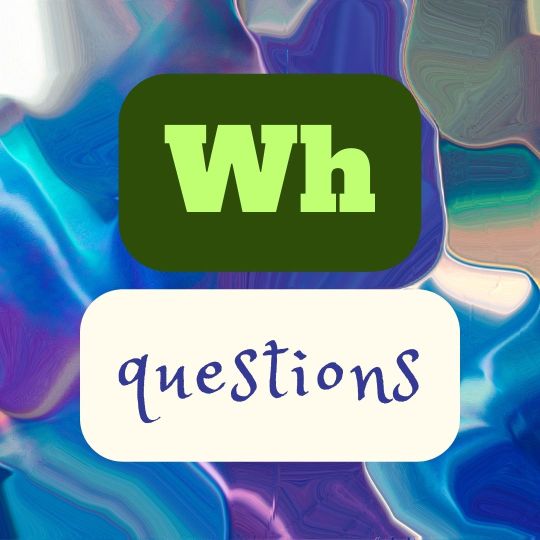#modals
Text
Modal verbs
Modal verbs are auxiliary verbs that express notions like possibility, permission, obligation, etc.

Follow @everythingaboutbiotech for informative and useful stuff.
#modalverbs#modality#grammarlessons#learnenglish#esltips#englishgrammar#auxiliaryverbs#modals#englishLanguage#englishteaching#onlineteaching#englishhelp#grammarguide#grammarmatters#grammarcheck#englishisfun#englishteacher#teachingenglish#teachgrammar#englishlearning#englishvocabulary#vocabularywords#wordoftheday#wordpower#englishclass#englishstudent#eltchat#tesol#tesoltips#onlinelearning
14 notes
·
View notes
Text
June 2022: modals and a cool linguistics paper
My newsletter for June 2022: modals and a nifty (spoilery!) linguistics paper
Some linguists got very excited about a very cool linguistics paper by the late Anne Cutler, which I won’t spoil (because it really does have spoilers, but trust me you don’t need any particular linguistics background to get why it’s cool) and as a result we also managed to track down Anne Cutler’s Christmas Letter, which is mentioned in the paper. (The full twitter thread, linked to from below,…

View On WordPress
21 notes
·
View notes
Text

Which flavor modal u want 🍦🍦🍦
#my speech#/)?&/&?@/ this is so#linguistics memes#linguistics#linguistics is as funny as it is fascinating#modals#modal expression#modal flavor#epistemic flavor#deontic flavor
11 notes
·
View notes
Text






leaked 😛
#bahanlancap#malay hijab#melayu sedap#melayu tudung#melayubogel#modal melayu#modallancap#tudung bogel#tudung hot#tudung lancap#lucah melayu#melayucantik#modalpancut#melayunakal#awekmantap#awekcun#awektudung#awekhijab#awekmelayu#aweksangap#tudung mantap#gadis tudung#tudung lucah#gadismelayu#gadisnakal#gadisbogel#tetekbesar#tetekmelayu#tetekpadu#tetekmantap
12K notes
·
View notes
Text
MODALS AND THEIR USE
0 notes
Text
Wh-questions (Interrogative Sentence)

Interrogative Sentence-Wh Questions:
Wh-Questions:
Wh-questions is a type of Interrogative Sentences. They start with words like who, what, where, when, why, how, which, whose, and whom.
These questions are particularly effective in extracting detailed information and encouraging thoughtful responses.
Who:
Who is coming to the party?
Used to inquire about a person or people. The answer typically includes names or descriptions of individuals.
What:
What are your plans for the weekend?
Used to ask about things, activities, events, or ideas. The response provides information or details about the subject.
Where:
Where did you go on vacation?
Used to ask about a location or place. The response includes details about the specific place.
When:
When is the deadline for the project?
Used to inquire about a specific time or date. The response includes details regarding the timing of an event or activity.
Why:
Why did you choose that career path?
Used to ask about reasons or explanations. The response provides the rationale behind an action or decision.
How:
How did you solve the problem?
Used to inquire about the method, manner, or process of doing something. The response includes details on the approach taken.
Which:
Which book do you want to read?
Used to ask about a specific item or choice among several. The response identifies the chosen option.
Whose:
Whose car is parked outside?
Used to inquire about possession or ownership. The response identifies the owner of the specified item.
Whom:
Whom did you meet at the conference?
Used when referring to the object of a verb or preposition in formal contexts. The response includes the person with whom the action or interaction occurred.
Word Order in Wh-Questions:
The general word order for Wh-questions in English is as follows:
Question word (Wh-word): This is the word that indicates the type of information being sought (who, what, when, where, why, how).
Auxiliary verb or modal verb: Following the question word, there is often an auxiliary verb (e.g., is, are, am, was, were, do, does, did) or a modal verb (e.g., can, could, will, would, should, may, might, must).
Subject: The subject of the sentence comes next, and it can be a pronoun or a noun.
Main verb: Finally, the main verb follows the subject.
Here are a few examples to illustrate the word order in Wh questions:
What is your name?
Wh-word: What
Auxiliary verb: is
Subject: your
Main verb: name
Where did you go yesterday?
Wh-word: Where
Auxiliary verb: did
Subject: you
Main verb: go
Why is she crying?
Wh-word: Why
Auxiliary verb: is
Subject: she
Main verb: crying
How can I help you?
Wh-word: How
Auxiliary verb: can
Subject: I
Main verb: help
By following this word order, you can form grammatically correct and meaningful Wh- questions in English.
Subject Questions:
Have you ever noticed that in casual conversations, questions sometimes sound a bit different than what you'd find in a grammar textbook?
The question words themselves take on the role of the subject.
This phenomenon, known as subject questions.
Subject questions (who? and what?) are a feature of informal spoken English where auxiliary verbs are omitted in questions.
They often occur in simple tenses and directly address the subject without using auxiliary verbs.
Here are examples:
Present Simple:
What impresses you in his pictures?
Who made this dress?
Past Simple:
What surprised you yesterday?
Who designed this building?
Questions to Subject Complement:
Whose? which? how many? and how much? are questions to subject complement.
Whose children came here yesterday?
Which of you won the prize?
How many students work here?
The words whose, which of you, and how many are not acting as subjects but as determiners.
Whose children is a determiner phrase that functions as the subject complement.
The actual subject is children.
The phrase whose children provides additional information about the subject.
Which of you serves as a determiner phrase, and the actual subject is you.
The phrase which of you acts as a modifier, specifying which particular group among you is being referred to.
So, in these sentences, whose and which of you are not subjects themselves but are contributing information about the subjects (children and you) as determiners.
Questions to Subject in Tense forms with 2 auxiliaries:
When forming complex tense forms with two auxiliaries, it's important to maintain proper grammar.
Here are examples of questions where what and who are subjects, using complex tense forms:
Present Perfect Continuous:
What has been happening?
Who has been leading the project?
Past Perfect Continuous:
What had been going on before you arrived?
Who had been working on this task?
Future Perfect Continuous:
What will have been going on when we get there?
Who will have been managing the team by next year?
Present Perfect:
What has happened to the missing documents?
Who has completed the assignment already?
Past Perfect:
What had occurred before the power outage?
Who had finished their work before the deadline?
Future Perfect:
What will have happened by the time we meet again?
Who will have submitted their reports by the end of the week?
In these examples, the questions involve two auxiliaries, such as has been, had been, will have been, has, had, and will have.
These auxiliaries are used to form the various complex tense structures, and they cannot be omitted for the sentences to maintain grammatical correctness.
Questions using to be + nominal part:
Who is your favorite author?
What is your biggest fear?
Who are the people in the photograph?
What is your job title?
Who is the captain of the team?
What are your plans for the weekend?
Who is that mysterious person over there?
What is the purpose of this meeting?
Who are the key players in the project?
What is the main ingredient in this dish?
Who is responsible for the decision?
What are the advantages of this new technology?
Who is the president of the company?
What is the solution to the problem?
Who are your closest friends?
What is broken?
Who is angry?
What is she?
Who is he?
What are they like?
What kind (sort) of woman is she?
What kind (sort) of thing is it?
What? and Who? to define the concepts of profession and kinship.
Here are the answers:
Profession:
What is she?
She is a doctor.
What is he?
He is an architect.
Kinship:
Who is she?
She is a mother.
Who is he?
He is a brother.
Negative Wh-questions:
Negative Wh-questions, where not is used after the subject in a sentence, are a common and grammatically correct way to inquire about the absence of an action or event.
This construction is often employed to express curiosity, seek clarification, or gather information about the reasons behind a negative occurrence.
Here are a few examples:
What did she not understand about the instructions?
This question seeks to identify the specific aspects of the instructions that the person did not comprehend.
Where did they not go during their vacation?
This question is used to find out which place or places the individuals intentionally avoided visiting during their vacation.
When did he not complete the assignment?
By using this question, you are inquiring about the specific time or period when the person failed to finish the assignment.
Why did we not receive a response to our email?
This question is posed to understand the reasons behind the absence of a response to the email.
Who did you not invite to the party?
This question aims to discover the individuals who were intentionally left out when inviting guests to the party.
How did the team not achieve its goals?
By asking this question, you are seeking information about the factors or circumstances that prevented the team from reaching its objectives.
Which topic did the teacher not cover in today's lecture?
This question helps to identify the specific topic or content that was omitted from the lecture.
Whose advice did they not consider before making the decision?
In this case, the question is directed at understanding whose advice was intentionally overlooked or ignored in the decision-making process.
To whom did you not disclose the confidential information?
This question seeks to identify the individuals or parties with whom the confidential information was not shared.
How did the project not meet the client's expectations?
By asking this question, you are inquiring about the specific aspects of the project that fell short of the client's expectations.
These negative Wh-questions provide a nuanced way to explore the reasons behind the absence or negation of certain actions, events, or choices.
Not after Auxiliary or Modal verbs:
The particle not is used after auxiliary verbs or modal verbs, in Questions to Subject and its Complement.
Here are some examples:
Who hasn't completed their homework yet?
Which team hasn't won a single match this season?
What can't you understand about the concept?
Who hasn't been informed about the schedule change?
Which guests can't attend the event tomorrow?
Wh-questions (Interrogative Sentence)
Types of Interrogative Sentences
Negative Declarative Sentences: Structure, Usage, and Style
Stylistic Elegance: The Role of Subject-Verb Inversion in Language
Read the full article
#auxiliaryverbs#complementquestions#detailedinformation#how#interrogative#modals#negativewh-questions#sentence#subjectquestions#thoughtfulresponses#Whquestions#what#which#who#whom#whose#why
0 notes
Text
Solve:
The incremental approach can't solve every problem. The implication on algorithms is then, half of all algorithms are immoral. Trying to assume a moral ideal like "neutrality" doesn't work. To actually enumerate this space requires reasoning. Trading comfort implies a potentially toxic realm of consensus. Tools designed for charity must spread freely. Try avoiding hesitation.
All weapons rejected. Care meets people. Ether tends quilt. Groovy usage dare. Idolize shared tools with use. Kindness grips cue. Mutagenic property thrives.
Forget all of this if it doesn't help you yet, when roots of all viral phenomena are kind, recognize simplest of all grips.
1 note
·
View note
Text





BERMINAT NAK JOIN PRIVATE CHANNEL?🤩
SEKARANG KITA TENGAH ON PROMO 🤭
RM59 SAHAJA UNTUK 2 GROUP🔥
FREE BACKUP GROUP✅
MEMPUNYAI COLLECTION TERKINI DAN TERDAHULU✅
SEMESTINYA TERMURAH DAH TRUSTED✅
MANA PEMINAT VIDEO MELAYU DI ALU ALU KAN🔥
LINK ADA DI BIO ✅
PM KE TELEGRAM cecebu
ASAP🔥✅
#lucah melayu#melayu lancap#melayu sedap#melayu sex#melayu tudung#melayubogel#melayuboleh#melayucantik#melayunakal#modal melayu#awekcun#awektudung#awekmelayu#tudung viral#tudung sangap#tudungmelayu#tudung lancap#tudung mantap#tudung hot#tudung lucah
5K notes
·
View notes
Text





BERMINAT NAK JOIN PRIVATE CHANNEL?🤩
SEKARANG KITA TENGAH ON PROMO 🤭
RM59 SAHAJA UNTUK 2 GROUP🔥
FREE BACKUP GROUP✅
MEMPUNYAI COLLECTION TERKINI DAN TERDAHULU✅
SEMESTINYA TERMURAH DAH TRUSTED✅
MANA PEMINAT VIDEO MELAYU DI ALU ALU KAN🔥
LINK ADA DI BIO ✅
PM KE TELEGRAM cecebu
ASAP🔥✅
#lucah melayu#melayu lancap#melayu sedap#melayu tudung#melayubogel#melayuboleh#melayucantik#melayunakal#gadis tudung#melayu sex#awekslook#awekhijab#awekmantap#awekcun#awektudung#awekmelayu#tudung viral#tudung sangap#tudungmelayu#tudung lancap#tudung mantap#tudung hot#tudung lucah#tudung bogel#modal melayu#lancap punggung#modal lancap#bahan lancap#rogol#ketat
5K notes
·
View notes
Text





thx for the service 😋
#bahanlancap#malay hijab#melayu sedap#melayu tudung#melayubogel#modal melayu#modallancap#tudung bogel#tudung lancap#modalpancut#awekmantap#aweksangap#awekcun#awekhijab#awektudung#awekmelayu#tudung viral#gadiscomel#gadishijab#gadismelayu#gadisnakal#gadiscantik#gadisidaman#gadisbogel#melayucantik#malaygirl#tetekbesar#tetekmelayu#tetekpadu#tetekmantap
7K notes
·
View notes